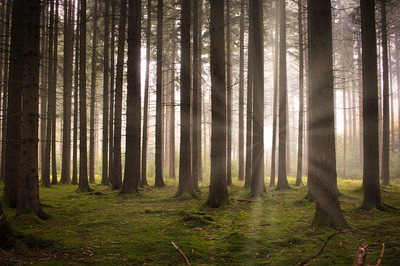Wisconsin Groups Urge the Biden Administration to do More to Protect Mature and Old-Growth Forests
Friday, October 4th, 2024 -- 9:01 AM

(Danielle Kaeding, Wisconsin Public Radio) Some Wisconsin groups are urging the Biden administration to do more to protect mature and old-growth forests under its proposal to conserve those trees as logging interests are pushing back against changes.
Environmental groups say the U.S. Forest Service has received more than 1 million comments to protect old-growth forests from logging since President Joe Biden issued an executive order to conserve them two years ago.
The directive called for reducing the risk of wildfires and developing policies to make the nation’s forests more resilient to climate change. The U.S. Forest Service released a draft environmental impact statement of its plan to conserve older forests and limit logging, but the agency stopped short of a ban on logging old-growth forests.
The Forest Service proposal would revise plans for 122 national forests, including the Chequamegon-Nicolet National Forest in Wisconsin. In recent comments, groups like Sierra Club Wisconsin and the Environmental Law and Policy Center, or ELPC, are calling for an end to logging old-growth trees.
Cassie Steiner, senior campaign coordinator with Sierra Club, said there’s a very small portion of those forests nationwide. “The value that these older trees have, and these areas that have a healthy mix of ages of trees are so precious, and the current amendment would allow for harvesting in these areas,” Steiner said.
Environmental groups say the forests are crucial for storing billions of tons of carbon for decades or centuries. An initial inventory identified around 24.7 million acres of old-growth and 68.1 million acres of mature trees on national forest lands.
That represents roughly 17 percent and 47 percent of the nation’s forests. In Wisconsin, logging advocates say there’s no need to conserve old-growth trees in the national forest outside the normal planning process, including Henry Schienebeck, executive director of the Great Lakes Timber Professionals Association.
The group’s members represent 14,000 workers in Wisconsin and Michigan. “There’s designated old growth already,” Schienebeck said. “There’s a lot of (the forest) that’s already set aside, and we already have young successional forests that are getting too old and should be harvested.”
Around 864,000 acres or more than half of the Chequamegon-Nicolet National Forest has been deemed suitable for timber production, according to the forest’s plan. About 11,000 to 12,000 acres are harvested each year.
The forest products industry has a $37.8 billion economic impact in the state. The Wisconsin Council on Forestry also expressed concern about a one-size-fits-all approach to managing national forests.
Feel free to contact us with questions and/or comments.




